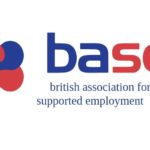The education select committee published their latest report “The apprenticeships ladder of opportunity: quality not quantity”
The report considers the following issues:
- The quality of current provision, how this varies by sector, level and region, and the impact of this on learner outcomes;
- The effectiveness of the quality monitoring system, in particular the role and capacity of Ofsted;
- The role of the Education and Skills Funding Agency in ensuring value for money, and the impact of different funding models;
- Quality and oversight of training provided by subcontractors; and
- Quality of training received by the socially disadvantaged, and barriers to them undertaking this training.
The report found enthusiasm for apprenticeships and the opportunities it can offer when it works but there is real recognition of how quality and fair pay can help increase parity in apprenticeships and social justice.
The report calls for a crackdown on those paying less than the minimum wage for apprenticeships calling for larger fines and more prosecutions for firms that aren’t paying the apprenticeship minimum wage.
Read the full report hereOur view
We welcome this report, apprenticeships have a great role to play in supporting people to progress, shoring the skills the economy needs to thrive and creating quality pathways for our young people to transition into. There has been significant change in the apprenticeship space and this has lead to greater opportunity but also has threatened the quality of some apprenticeships. Focusing now on quality and ensuring that fundamentally apprenticeships are there to support social mobility and provide opportunity for young people to progress is key to achieving a successful and world class apprenticeship system.
To create parity for apprenticeships and make them a viable option for all young people we have to be paying young people fairly for the work they do and ensuring that apprenticeships are quality opportunities set within clear pathways for progression. We have to ensure there are not other hidden barriers to apprenticeships such as recruitment practice, travel or access to support. When we talk about quality we want to see this coming through in terms of training, the role itself and the progress young people can make.
We particularly welcome the recommendations to create funding models to support young people from disadvantaged backgrounds to access apprenticeships, and that the apprenticeship wage should be raised. We would argue that the apprenticeship minimum wage should be scrapped and young people at work are treated and paid fairly alongside other workers. Ensuring our welfare system supports rather than hinders young people looking to progress into apprenticeships is an essential part of this government jigsaw.
Putting young people firmly in the driving seat along with employers and providers should also be a priority. There is often much tokenism around youth voice, yet it is only by including and allowing the voices of young people to lead will we see a real step change in how young people across the country feel and engage with apprenticeships.
The recommendation of an introduction to a kitemark system for good apprentice employers to encourage best practice and help apprentices choose the best employer for them is a good one. We would highlight the Youth Friendly Employer Award which is an existing kitemark, co-created by young people and already doing this to be that chosen mechanism. The Youth Friendly Employer Award is more than a kitemark, it provides employers of all sizes comprehensive support to create, learn from and develop the best opportunities through their early careers, work experience and employment opportunities.
The Youth Friendly employer Award is becoming familiar to the thousands of young people accessing skills and careers information through the Youth Employment UK careers hub and Young Professional Programme, therefore it supports quality employers, careers learning and skill development in one space.
With 27 recommendations this is a significant report, and one we call on government to take note of.







